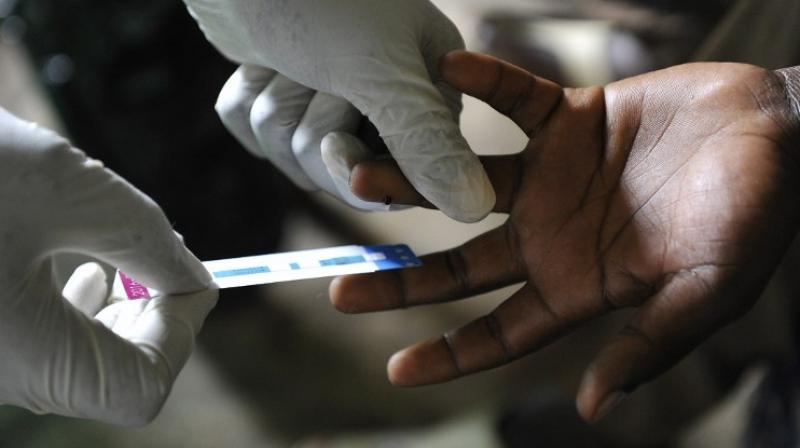Type 4 diabetes afflicts brain, eye tissue, says study

Hyderabad: A certain type of diabetes can also affect the brain and tissues of the eyes, according to a study by scientists at the All India Institute of Medical Sciences. This type can occur independently in the brain, even if the patient has other types of known diabetes or does not have diabetes.
Dr Muneeb Faiq and Dr Tanuj Dada, who carried out the study, have labelled it ‘Diabetes Type 4’. Their findings were published in Current Molecular Medicine in an article titled Diabetes Type 4: A Paradigm Shift in Understanding of Glaucoma, Brain specific Diabetes and Candi-dature of Insulin as a Therapeutic Agent.
The researchers found that this type of diabetes is different from the one accompanied by high blood glucose levels.
Dr Muneeb Faiq explains: “This type affects the brain and eye tissues and it may or may not have high blood glucose levels.”
Dr Shyam Kalava-lapalli, senior endocrinologist, said that “Type 3 and Type 4 diabetes are such that there is a defect in the processing of insulin and glucose in the brain. Hence, in these cases, it is found that the rest of the body may not have high glucose levels but there may be a problem in functioning of the brain and eye tissues.
In some cases, there will be high blood sugar levels and the insulin functioning may not be proper. Hence research shows that it can also exist in the body even if a person does not suffer from diabetes.”
Most Indians are hit by Type 2 diabetes
Recent studies on mice have shown that those with lean bodies who do not suffer from the conventional diabetes have shown Type 4 diabetes, where there is a problem in processing insulin and glucose in the brain. This has given researchers insight into Parkinson's and Alzheimer's disease. The research also throws light on eye tissues which originate from the brain and how it affects glaucoma patients.
Some 95 per cent of people in India suffer from Type 2 diabetes where blood sugar levels are high and diet modification, exercise, tablets and sometimes insulin are required.
Dr Ravi Sankar Erukulapati, senior endocrinologist at Apollo Hospital explained, “There are certain common features at the cellular and mitochondrial level in terms of glucose metabolism in the eye and brain in patients affected with glaucoma. So too with patients of diabetes mellitus. For this reason, enthusiastic researchers have proposed diabetes Type 3 and Type 4 for these terms. But glaucoma is of several types and it would be too premature to equate it to Type 4 diabetes. These above findings in the research have similarities in processing of glucose by the brain cells and throw light on newer avenues for potential research and also possibility of newer treatments and hence must be looked at in that light only.”

